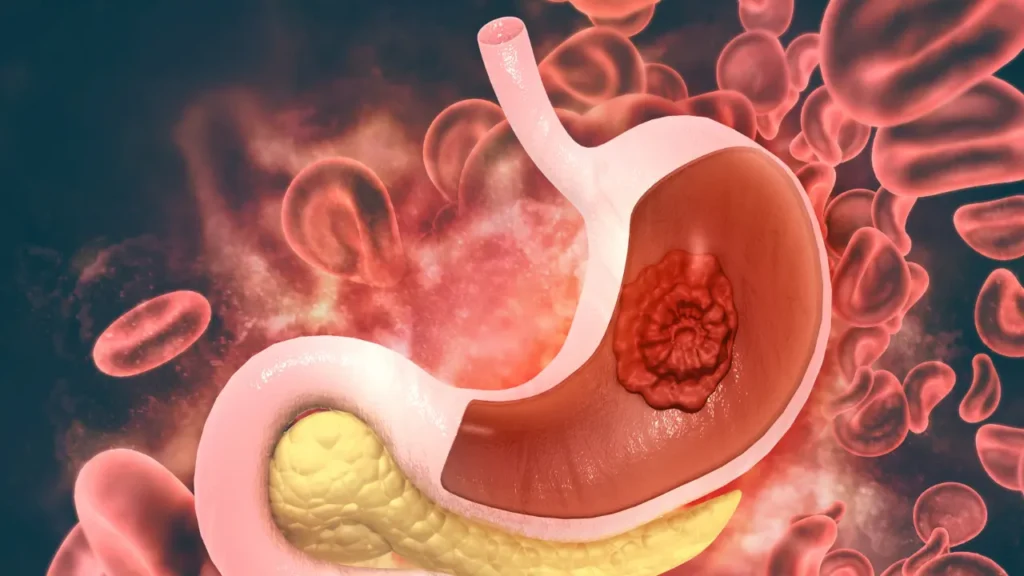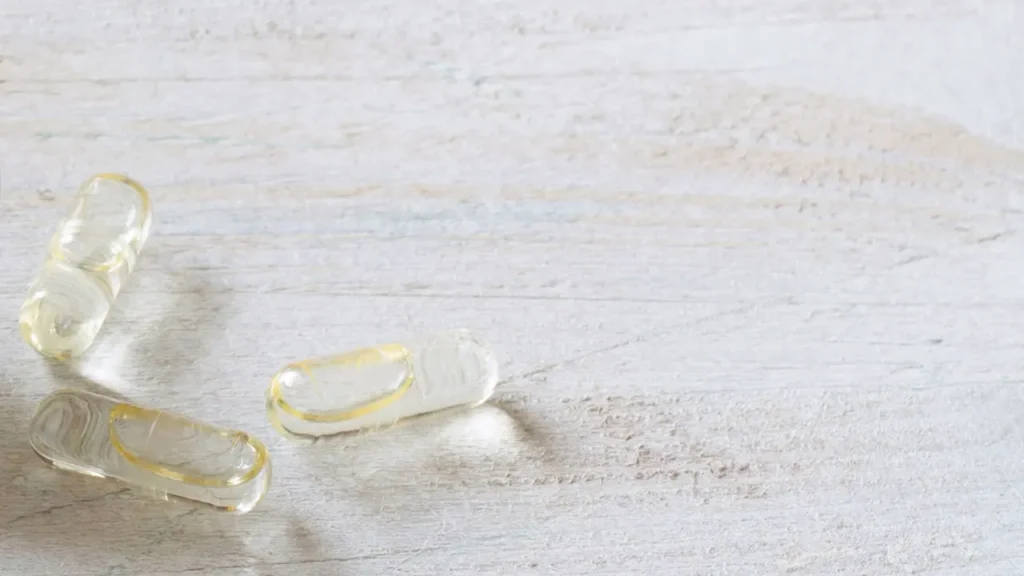Bismuth is a popular nutritional supplement with several uses in the field of health and wellbeing. It is a heavy metal element with the atomic number 83. Bismuth subsalicylate, which is found in over-the-counter drugs like Pepto-Bismol, is its most popular form when it comes to medical use. This article aims to give a thorough overview of the properties, advantages for health, recommended dosage, negative effects, and possible drug interactions of bismuth. It also provides a detailed analysis of the chemistry and physiological mechanisms by which bismuth affects the body and brain.
You May Also Like:
5 Great Nootropic Herbs for Energy, Focus, and Productivity
Bismuth: Benefits, Dosage, Side Effects, Drug Interactions, and Other Important Information is an original (NootropicsPlanet) article.
Nature of Bismuth
The Earth’s crust naturally contains the thick, brittle metal bismuth. It typically coexists with other metals like lead, tin, and copper and is present in the human body in trace amounts. Despite sharing many characteristics with heavy metals like lead and mercury, bismuth is a post-transition metal and is comparatively non-toxic. In its pure form, bismuth is a pinkish-white metal that crystallizes and develops an iridescent oxide tarnish. In nutrition and medicine, examples of bismuth compounds including bismuth subsalicylate, bismuth citrate, and bismuth subgallate are frequently utilized.
Health Benefits of Bismuth
Its components are known to have antibacterial, anti-inflammatory, and antacid characteristics, and bismuth has been used for millennia in traditional medicine to treat a variety of illnesses. The following are a few of the noteworthy health advantages of bismuth:
A. Digestive Health: Bismuth subsalicylate is widely prescribed to treat nausea, diarrhea, heartburn, and indigestion. Its antibacterial qualities aid in the eradication of germs like Helicobacter pylori that cause gastrointestinal illnesses. The symptoms of gastroesophageal reflux disease (GERD) are also lessened by its antacid qualities.
B. Wound Healing: Because of their astringent, antibacterial, and anti-inflammatory qualities, bismuth compounds, such as bismuth subgallate, aid in the healing of wounds. It has been successful in using bismuth-based bandages to treat burns, ulcers, and persistent, non-healing wounds.
C. Radiation Defence: Bismuth compounds are being researched for possible radioprotective properties. The body’s cells are shielded from damage by the high atomic number and density of bismuth, which makes it a potent shield against ionizing radiation.

Chemistry of Bismuth
Bismuth is a member of the periodic table’s group 15, which also includes nitrogen, phosphorus, arsenic, and antimony. Due to its low toxicity and multiple medical uses, bismuth stands out among heavy metals. When bismuth is combined with different ligands, stable and interesting coordination compounds are formed.
A. Electronic Setup: The electronic configuration of bismuth is [Xe] 4f14 5d10 6s2 6p3. Three p electrons and two s electrons make up its valence shell, which enables bismuth to form compounds in a range of oxidation states, most frequently +3 and +5.
B. Coordination Chemistry: With a variety of ligands, such as oxygen, nitrogen, sulfur, and halides, bismuth can form stable coordination compounds. The type of ligands and the metal’s oxidation state have a major impact on the coordination geometry of bismuth complexes.
C. Bismuth Compounds: Bismuth can be converted into a variety of substances with medical uses, including bismuth subsalicylate, bismuth citrate, and bismuth subgallate. These substances have unique properties that contribute to their health advantages, such as antimicrobial, anti-inflammatory, and antacid activities.
Physiological Mechanisms of Action of Bismuth on the Body and Brain
Complex and multifaceted physiological mechanisms are involved in how bismuth produces these effects:
A. Antimicrobial Activity: Compounds made of bismuth have the ability to fight against a variety of diseases, including bacteria, fungi, and parasites. Although the precise mechanism of action is still unclear, it is thought that bismuth interferes with the microorganism’s cellular metabolism, causing cell death. It has been demonstrated that substances containing bismuth interfere with DNA synthesis, cell membrane function, and bacterial enzyme activity.
B. Anti-inflammatory Activity: The anti-inflammatory activities of bismuth compounds are mostly attributable to their capacity to prevent the production of pro-inflammatory mediators such as prostaglandins and leukotrienes. Particularly, the salicylate component of bismuth subsalicylate is known to block the activity of cyclooxygenase enzymes, thereby reducing the production of prostaglandins and reducing inflammation.
C. Antacid Activity: Bismuth substances, such as bismuth subsalicylate, have antacid qualities because they neutralize stomach acid and create a barrier of protection for the stomach lining. The stomach lining is protected by this barrier from the damaging effects of gastric acid.

Optimal Dosage of Bismuth
The ideal bismuth dosage is determined by the particular chemical being used, the patient’s age, weight, general health, and the illness being treated. For instance, people with diarrhea or indigestion should take two tablets of bismuth subsalicylate (262 mg each) every 30 to 60 minutes, with a maximum of eight pills to be taken in a 24-hour period. The dosage for children should be chosen according to their age and weight, and medical guidance should be sought.
Before beginning bismuth supplementation, it is crucial to follow the directions on the product label and speak with a healthcare provider, especially if you have pre-existing medical conditions.
Side Effects of Bismuth
When taken as recommended, bismuth is generally regarded as safe, and its negative effects are often minor. Common negative effects of compounds containing bismuth include:
A. Darkened Stools and Tongue: When bismuth subsalicylate combines with trace amounts of sulfur in the saliva and gastrointestinal tract, bismuth sulfide is formed, which may result in a brief and harmless darkening of the stools and tongue. After stopping the usage of products containing bismuth, this side effect typically goes away on its own.
B. Nausea and Vomiting: Bismuth supplementation can occasionally cause nausea and vomiting in some people. This typically happens when the advised dosage is exceeded or if the person is sensitive to substances containing bismuth.
C. Allergic Reactions: Although uncommon, some people may experience an allergic reaction to compounds containing bismuth, which shows up as a skin rash, itching, swelling, or breathing problems. The use of bismuth should be stopped in such circumstances, and emergency medical care should be sought.
D. Bismuth Toxicity: When bismuth is used for an extended period of time in high dosages, it can produce bismuth toxicity, which can manifest as headaches, vertigo, confusion, and, in extreme circumstances, kidney failure or encephalopathy. It is crucial to follow the suggested dosages and speak with a healthcare provider before beginning bismuth supplementation in order to reduce the risk of toxicity.

Potential Substance Interactions with Bismuth
Certain drugs and substances may interact with bismuth, changing their effectiveness or raising the possibility of negative side effects. These possible interactions include:
A. Tetracycline: Tetracycline antibiotics can bind to bismuth, which decreases their efficiency and rate of absorption. Tetracycline antibiotics should be administered at least two hours before or after bismuth supplementation to prevent this interaction.
B. Anticoagulants: Bismuth subsalicylate includes a salicylate component that, when used with anticoagulants like warfarin, may increase the risk of bleeding. It is crucial to constantly monitor the international normalized ratio (INR) and, if necessary, modify the anticoagulant dosage.
C. Probenecid: Bismuth may lessen probenecid’s effectiveness as a gout and hyperuricemia treatment. Before utilizing goods containing bismuth, those using probenecid should speak to a healthcare provider.
Best Responsible Use of Bismuth
The following recommendations must be followed in order to utilize bismuth as a nutritional supplement safely and effectively:
A. Speak with a Medical Professional before beginning bismuth supplementation, especially if you have pre-existing medical issues, are pregnant, or are nursing.
B. Adhere to Suggested Doses: Follow the dose instructions on the product’s label or those that a doctor has suggested. Overdosing can increase the chance of adverse reactions or bismuth poisoning.
C. Keep an Eye out for Side Effects: When using products that contain bismuth, keep an eye out for any side effects or allergic reactions. Stop using the product and seek medical advice if any side effects intensify or persist.
D. Prevent Prolonged Use: Only use items containing bismuth for the shortest time period required to relieve symptoms or as prescribed by a healthcare provider. The risk of toxicity may rise with continued usage of bismuth.
Bismuth:
Conclusion
Bismuth is a type of metal that is found in the earth’s crust. This compound can be made into several medicines and supplements such as bismuth subsalicylate, bismuth citrate, and bismuth subgallate. It is believed to have therapeutic applications in gastrointestinal health, wound healing, and radiation defence. The health applications resulted from the anti-inflammatory and antibacterial properties of this compound. Comprehensive scientific research is necessary to establish the efficacy, safety, and optimal dosage for human consumption. If you are considering the inclusion of bismuth supplements into your routine, you must seek professional advice from healthcare experts to ensure a well-informed and responsible approach.

References:
- Bismuth Therapy in Gastrointestinal Diseases. Retrieved from:https://pubmed.ncbi.nlm.nih.gov/2199292/
- Current And Potential Applications of Bismuth-Based Drugs. Retrieved from:https://pubmed.ncbi.nlm.nih.gov/25251194/
- Biological Activities of Bismuth Compounds: An Overview of The New Findings And The Old Challenges Not Yet Overcome. Retrieved from:https://www.ncbi.nlm.nih.gov/pmc/articles/PMC10421188/
Important Note: The information contained in this article is for general informational purposes only, and should not be construed as health or medical advice, nor is it intended to diagnose, prevent, treat, or cure any disease or health condition. Before embarking on any diet, fitness regimen, or program of nutritional supplementation, it is advisable to consult your healthcare professional in order to determine its safety and probable efficacy in terms of your individual state of health.
Regarding Nutritional Supplements Or Other Non-Prescription Health Products: If any nutritional supplements or other non-prescription health products are mentioned in the foregoing article, any claims or statements made about them have not been evaluated by the U.S. Food and Drug Administration, and such nutritional supplements or other health products are not intended to diagnose, treat, cure, or prevent any disease.


